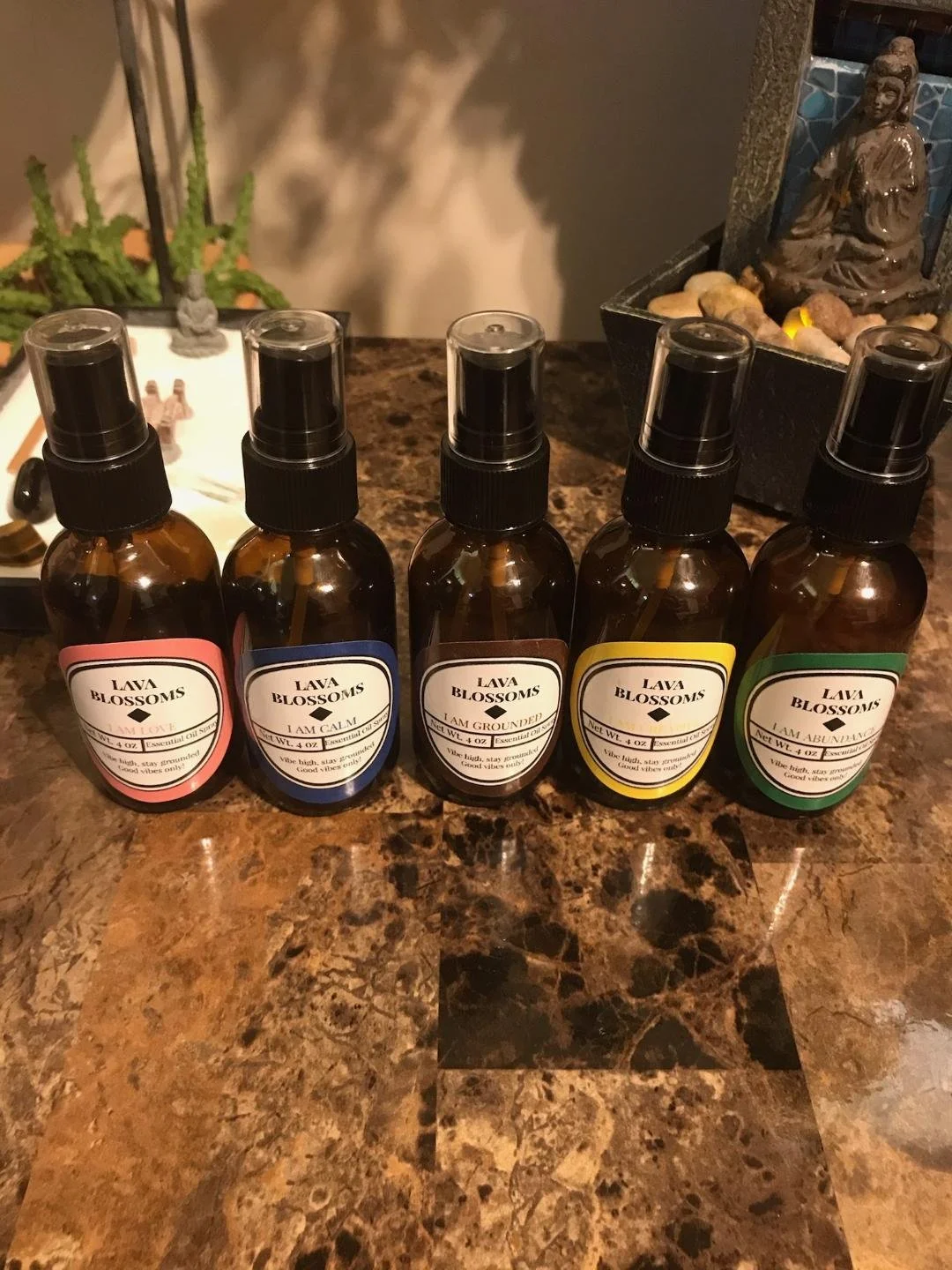The Power of Essential Oils
Our Essential Oil Blends
Essential oil is a plant's concentrated aromatic essence, located in specialized cells of the plant's parts such as flowers, leaves, seeds, peel, wood, resin, or roots. The inhalation of these aromatic molecules can immediately impact our mind, body, and spirit. Essential oils may uplift, calm, energize, or even transform. Their therapeutic application for healing dates back to ancient civilizations across the globe. In World War I, essential oils were utilized for treating soldiers' burns and wounds and were also effective for psychiatric patients, demonstrating their emotional and psychological healing effects. The action of essential oils starts with inhalation, leading to their particles traveling through the trachea to the bronchial tubes and lungs. Here, in the lungs' alveoli, surrounded by capillaries, gas exchange occurs, allowing essential oil particles to enter the bloodstream. Once in the circulation, these particles reach various organs and systems, with most oils having a therapeutic affinity for certain areas. Essential oils also have notable mental, emotional, and psychological impacts; for example, rose oil is recognized for its antidepressant, nerve tonic, and aphrodisiac qualities. Despite their potency and benefits, essential oils require respectful and careful use. When used correctly and safely, essential oils can be both safe and beneficial.
Sources: The Aromatherapy Bible, The definitive guide to using essential oils, Gill Farrer-Halls.
Essential Guide to Herbs, Lesley Bremness

